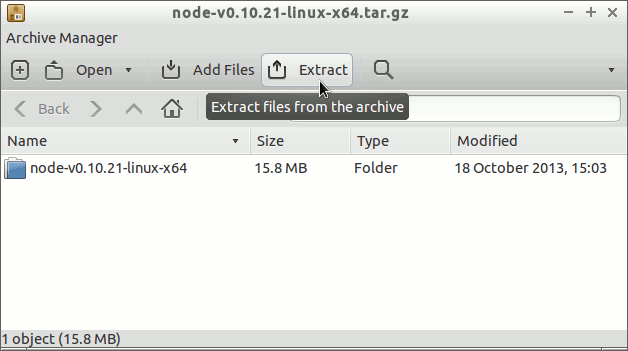Node.js Quick Start on openSUSE 13.X Linux
How to Install and Getting Started Quickly with the Latest Node.js on openSUSE 13.X i686/x8664 Linux.
Node.js is an Amazing New Javascript Stuff that is at the Same Time either a Web Server and a Web Development Framework.
Node.js is Well Known for his Performances and Scaling Attitudes derived from a Single Thread Non-Blocking Architecture “First, come, first served”.
Especially relevant: there is also the Possibility of Installing an Older Node.js Release by the openSUSE Repos but Best to Download and Install Directly the Latest Node.js Binaries.
To the How to Install & Getting Started with Node.js on openSUSE 13.X Bottom you Find Link to Guide with Quick Start on Node.js Javascript Server/Framework.

-
Download Latest Node.js Binaries for Linux.
-
Double-Click on Archive and Extract into /tmp.

-
Open a Terminal Window.
-
Relocate Node.js
sudo su -c "chown -R root:root /tmp/node*"
sudo mv /tmp/node* /usr/local/node
-
SetUp Local User PATH:
nano $HOME/.bashrc
Append:
export PATH=$PATH:/usr/local/node/bin
Then Load the New PATH:
source $HOME/.bashrc
-
Node.js Quick Start Guide on Linux.
Now you are able to Getting Started with the Node.js Development, to Look for Further Docs and Resource meet the Online Node.js Developers Community.